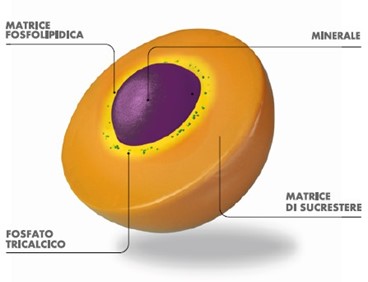Food supplements: What problems can they cause?

The world of nutritional supplements, known also as nutraceuticals, has grown exponentially over recent years and there are now thousands of products available on the market, boasting a vast range of properties and uses.
While these are all products generally safe for our health, any improper use can cause unwanted side effects for the intestine, from simple stomachache to nausea and diarrhoea. In this article we aim to clarify the main side effects related to supplements, and how to avoid them, in an attempt above all at understanding how the absorption of nutrients works in our body.
What is a nutritional supplement? The definition of the Ministry of Health
Supplements can be purchased at the chemist’s, the supermarket or online, and do not require a doctor’s prescription and, while not containing any pharmacologically active ingredient, could cause some side effects, and therefore the instructions for use and warnings should always be read with care.
The Italian Ministry of Health defines nutritional supplements as follows:
“Food products intended to supplement a standard diet and which constitute a concentrated source of nutritional substances, such as vitamins and minerals, or other substances that have a nutritional or physiological effect, in particular, but not limited to, amino acids, essential fatty acids, vegetable fibres and extracts, both in single and multiple combinations, in pre-dosed forms.”
It is important to remember that supplements are not intended as replacements for a varied and balanced diet and must be used as part of a healthy lifestyle.
How does our body absorb these nutrients?
Nutritional supplements can contain various types of nutrients, with different functions, mainly: vitamins, minerals, amino acids and natural extracts.
The nutrients, based on their chemical properties, undergo a series of transformations in our body; in fact carbohydrates are structurally modified by saliva enzymes, known as amylase; proteins are subject to both gastric and intestinal metabolism, thanks to the main action of an enzyme called trypsin; meanwhile, fats are structurally modified by enzymes known as lipase, which modify them to then transform them into chylomicrons to be absorbed into the lymphatic system.
Vitamins can be divided into two categories: Hydrosoluble (which dissolve in water) and liposoluble (which dissolve in fats). These are mainly absorbed in the first section of the small bowel by passive diffusion or by active transport.
On the other hand, minerals follow a different path, as they are not modified by any enzymes and they are mainly absorbed in the duodenum, in other words in the first section of the small bowel.
Meanwhile, water and electrolytes (sodium, chloride, potassium) are absorbed via the terminal section of the small bowel, in the jejunum and the ileum.
What factors can limit the absorption of nutrients? Why are minerals more difficult to absorb?
There are many factors that cause limited absorption of nutrients in our body, and the following conditions can play a significant role in this:
- diarrhoea
- coeliac disease
- food intolerances
- bariatric surgery
- inflammation of the bowel
- alcoholism
- constipation
- gastritis
Minerals are difficult to absorb by our body, because numerous factors come into play, both internal and external, which all regulate absorption.
For example, calcium absorption is not possible unless there is an adequate level of Vitamin D or other endocrine factors, such as the presence of the parathyroid hormone. On the other hand, the absorption of calcium can become problematic where there is the presence of a number of food-derived substances, such as phytic acid, which binds to the calcium to form insoluble salts, which makes absorption by the intestine impossible.
Phytic acid, also known as inositol, is a substance mainly present in cereals and legumes and is not only responsible for the reduced absorption of calcium but also of other important minerals such as iron, magnesium and zinc.
The most common side effects related to the use of nutritional supplements
The most common side effects that may be related to the use of nutritional supplements are:
- Diarrhoea
- Constipation
- Nausea
- Vomiting
The causes of these intestinal problems vary in type and depend on the individual.
Allergies and hypersensitivity to certain ingredients in the supplements play a significant role and represent the most common causes of these side effects, and for this reason European standards envisage that potentially allergenic substances should be declared and highlighted in the list of ingredients of nutritional supplements.
Furthermore, as described above, some side effects on the stomach may occur due to the fact that the minerals, which are not absorbed, remain stationary in contact with the stomach lining, causing symptoms such as acidity, nausea, vomiting and stomach cramps.
And it is here that Sucrosomial® technology comes into play…
To remedy some of the side effects and limits on the consumption of certain substances (minerals, vitamins) in nutritional supplements, PharmaNutra has developed Sucrosomial® Technology, to facilitate the absorption of minerals without causing the typical side effects of taking normal nutritional supplements.

Sucrosomial® Technology consists in a set of ingredients: a mineral source (iron, magnesium, zinc, selenium, iodine); a matrix of phospholipids and sucrose esters, which protect the mineral; tricalcium phosphate as a formula stabiliser.
The first mineral to be developed with Sucrosomial® Technology was iron, known as SiderAL®; there then followed magnesium, zinc, selenium and iodine all developed with the same innovative technology.
This technology was met with favour by numerous publications in international magazines and journals, testimony to the benefits of taking these nutritional supplements. In conclusion, the supplements containing the nutrients developed with Sucrosomial® Technology enable a high absorption of minerals in the body, avoiding direct contact with the stomach lining, where the most common side effects are caused.
